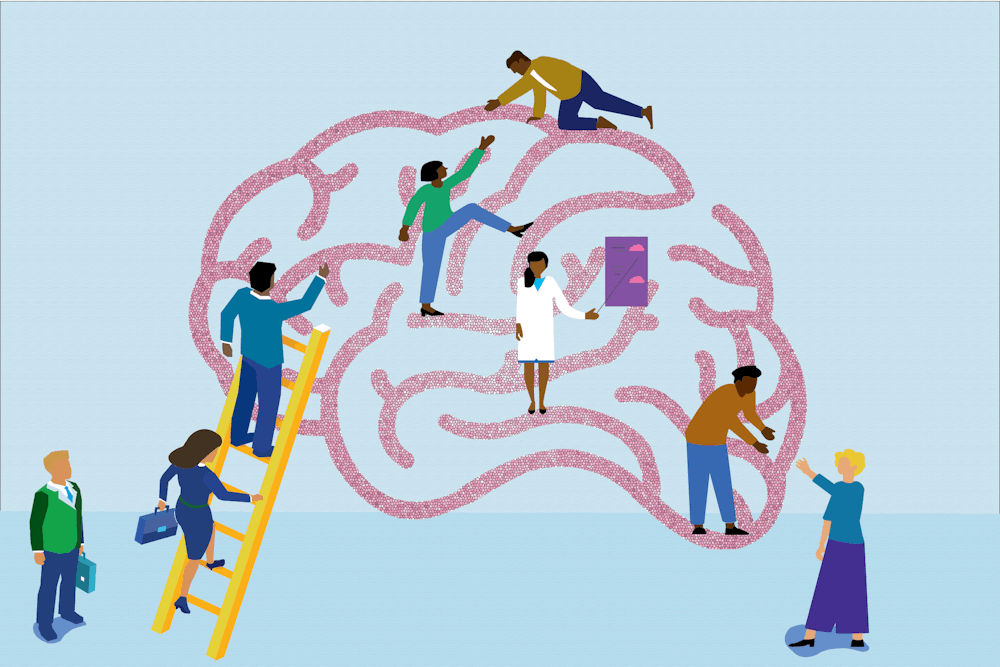Content warning: This article contains mentions of suicide and mental health issues.
Ever since middle school, Julia Bondareva has noticed that they, along with the people around them, have faced challenges with their mental health, especially anxiety and depression.
Now a UNC junior studying neuroscience and psychology, Bondareva is among the students currently working to become the next generation of mental health professionals and researchers.
As they grew up, they realized there was a larger issue, especially impacting people their age, which inspired them to look into the mental health field. When they took a psychology class in high school, they realized that this was the field they wanted to pursue. The class was the most interesting subject they had learned about yet, and Bondareva said they fell in love with how the subject facilitated human connection in a variety of ways.
Younger generations uniquely struggle with mounting academic and social pressure, Bondareva said, which can exacerbate existing conditions or genetic predispositions for mental illness.
“I think that pressure really makes or breaks people,” they said. “Seeing that firsthand, in a lot of my friends and myself, first inspired me to be like, 'There's a problem and I need to learn more about it because this is not going to go away.'”
In a 2022 study published by the National Library of Medicine, researchers found that young adults aged 18-25 years old had increased anxiety and/or depression symptoms from before the COVID-19 pandemic. In total, 48 percent of the young adults surveyed had mental health symptoms, 39 percent of which received treatment with 36 percent reporting unmet counseling needs.
Regular stressors, such as poverty or academic pressure, are worsened by unique issues — such as the recent rise in social media use and isolation as a product of the pandemic — young adults have faced in their formative years. UNC senior and UNC Chapter President of Helping Give Away Psychological Science Aidan Spelbring has seen this firsthand throughout his work and collegiate experience at UNC.
Spelbring, who studies psychology and conflict management at the University, said he decided to step into the field of psychology because of a mixture of personal experiences and environmental factors.




